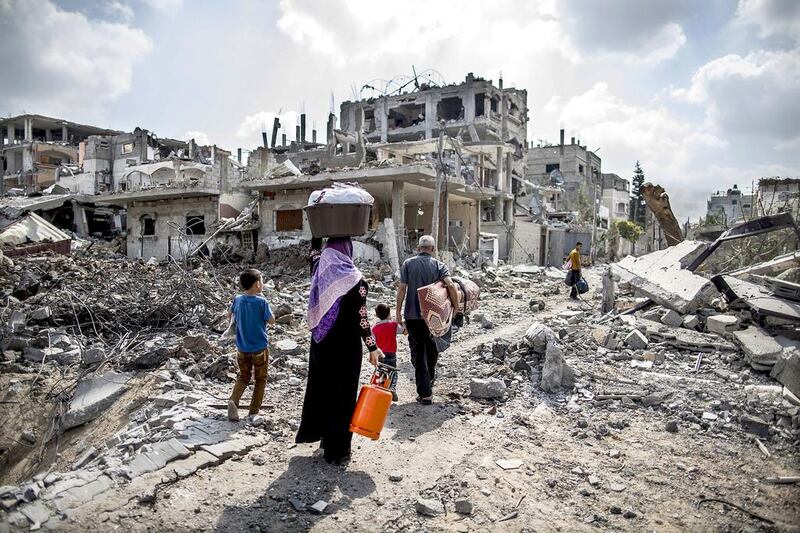With an uneasy peace returning, at least temporarily, to Gaza and the full extent of the destruction caused by Israel's bombardment becoming apparent, the international response is about to move into its next phase: preventing the already desperately impoverished Gazans falling prey to outbreaks of disease.
In midsummer, with one quarter of Gazans internally displaced and with the strip’s power, water and sewerage systems down to a fraction of their already meagre previous capacity, the risks are obvious. Despite this, the reconstruction process might be even more difficult than normal.
Israel claimed that the construction supplies it allowed into Gaza to rebuild schools and hospitals were instead used to build Hamas’s network of tunnels. This claim is strongly denied by the UN, which said the imports were strictly monitored and the tunnels were probably built using supplies smuggled from Egypt, but Israel is unlikely to allow easy access.
With no apparent political solution in the offing and with Israeli prime minister Benjamin Netanyahu vowing to resume hostilities if Hamas fires more rockets, the United Nations Development Programme in Gaza is also reporting a reluctance by donors to rebuild infrastructure that is likely to be destroyed by Israel's next bombardment. Some facilities destroyed in Operation Cast Lead in 2008-9 remain unrepaired.
The reality that has to override these factors is the pressing need of people in Gaza. UN deputy humanitarian chief, Kyung-wha Kang, warned of a vicious cycle in which the lack of electricity affects hospitals, decreases food production, and prevents water and sewerage being pumped. Sewage has already flowed onto agricultural land and could contaminate water, making disease outbreaks likely.
While the UAE has been among the first to offer help, this is a responsibility of the international community rather than just the Gulf countries. The United States did little to rein in Israel during the bombardment but it can do more now to ensure material is allowed in to prevent a humanitarian catastrophe that will deepen yet further the misery of ordinary Gazans.





